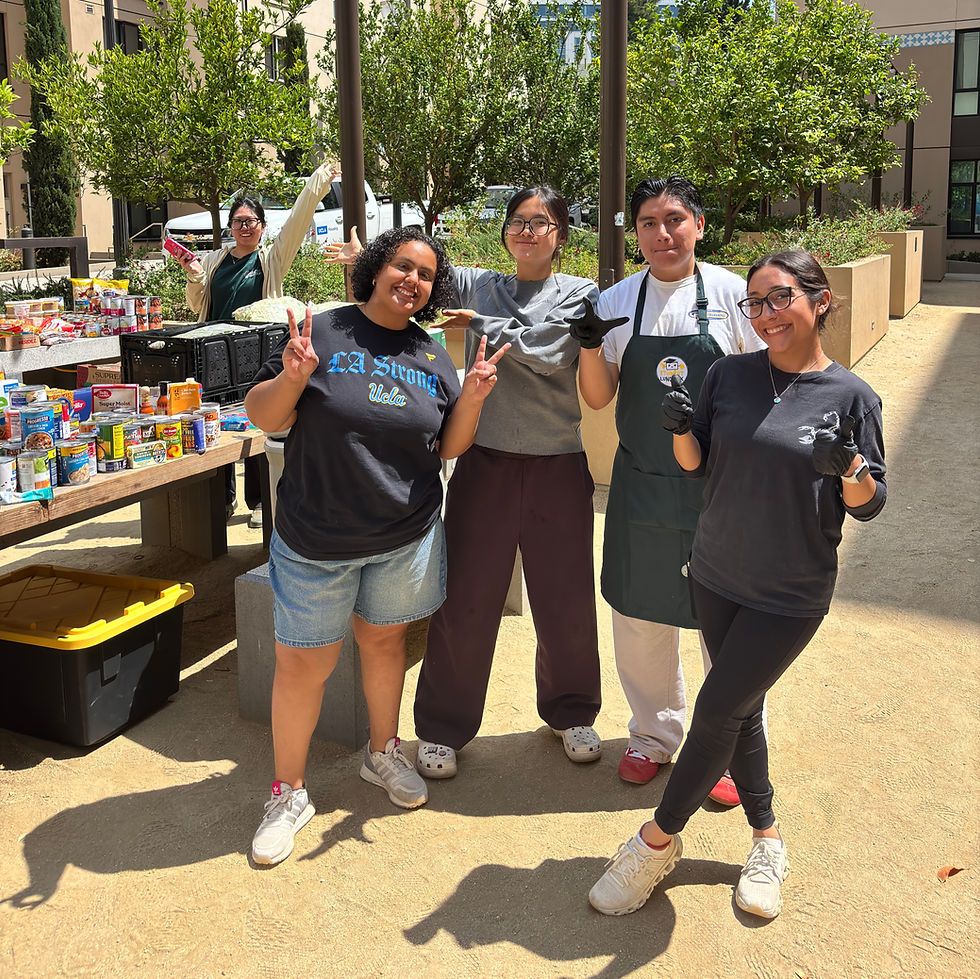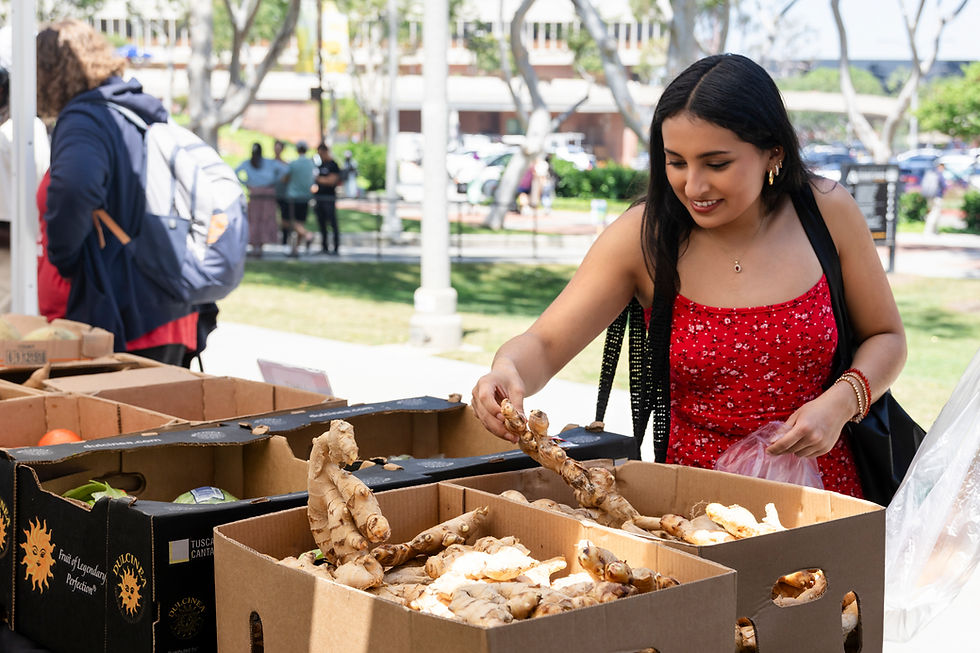From Passion to Purpose: One MPH Student’s Mission to Reduce Hunger and Food Waste on Campus
- Kelly Alarcon

- Jul 20, 2025
- 3 min read
Updated: Aug 20, 2025
As a Master’s in Public Health student, I’ve come to see that public health is more than a career; it’s a calling. While studying food systems, community health, and environmental sustainability, I discovered a crisis that hits close to home: college students facing food insecurity. And I couldn’t stay silent.
During my graduate studies, I was shocked to learn that many students, like myself, are juggling academics, jobs, and life while struggling to afford healthy food. According to the Hope Center, over 39% of college students experience food insecurity. These are students skipping meals, eating low-nutrient food, or sacrificing their health to save money.
That knowledge shifted my passion for nutrition into something deeper: a commitment to fighting food insecurity and reducing food waste, especially within our college communities.

Using Nutrition for Change
With my background in nutrition education and budget meal planning, I realized I had practical tools that could help other students. My mission became clear: to make nutritious food accessible and affordable, and help students maximize their resources.
Why Food Waste Matters—Especially for Students
Food waste is a hidden issue on campuses. Many students toss food because they don’t know if it's still safe to eat, or because they didn’t plan their meals. However, this waste isn’t just detrimental to the environment; it’s also a missed opportunity to nourish ourselves.
Most household food waste comes from poor planning and confusion over expiration labels. And when you're living on a tight budget, every ounce of food matters.
Key Resources for Reducing Waste and Saving Money
One of the best resources I recommend is the USDA-supported FoodKeeper App. It helps decode confusing labels like:
● "Use by"
● "Sell by"
● "Best before"
…and offers tips for storing food to keep it fresh longer. This knowledge can help students avoid throwing food away and instead keep it on their plates.
Meal Planning = Less Waste + More Nutrition
One of the most effective ways to combat food insecurity and waste is through meal planning. For students with limited time and money, this is a game-changer.
📝 My Top Tips for College Students:
● Check weekly grocery ads to plan meals around sale items (especially proteins).
● Never shop hungry; you’ll overspend on snacks and fast food.
● Make a list and stick to it—it keeps you on budget and reduces impulse buys.
● Prep your fruits and veggies for the week so healthy snacks are ready to grab.
Even just planning 3–4 meals for the week can save time, reduce stress, and cut waste by over 15%.
Nutrition Talks: Helping Students Take Control of Their Health
At my Nutrition Talks, a community education effort designed to serve communities, including college students,
I teach:
● Basic nutrition and how it impacts physical and mental health
● How to read nutrition labels through fun, interactive workshops
● How to use surplus food creatively, helping students build meals with what’s on hand
For example, I often demonstrate how to turn underused pantry and refrigerator items into nutritious and satisfying meals. With a little creativity and guidance, students learn how to stretch what they have and feel more confident in the kitchen.
Taking the Next Step
Every time I speak with a student who feels seen, informed, and equipped to take control of their health, I’m reminded why this work matters. Food insecurity and waste are challenges we can tackle not just through programs, but through shared knowledge and simple habits that add up.
If you’re a student facing these struggles, know that you are not alone. There are tools, tips, and community support available to help you succeed both in and out of the classroom. If you’re someone who wants to make a difference, I encourage you to start conversations, share resources, and be part of the solution.
Public health starts with all of us. Together, we can turn awareness into action.
By Kelly Alarcon.
Kelly Alarcon is a dedicated nutrition educator with a passion for promoting healthy eating habits. She serves as a board secretary at Student LunchBox. With a background in nutritional science, Kelly has spent over three years bringing nutrition education to underserved communities. Kelly believes that understanding nutrition is essential for lifelong health and is committed to providing accessible information to help individuals make informed food choices.






